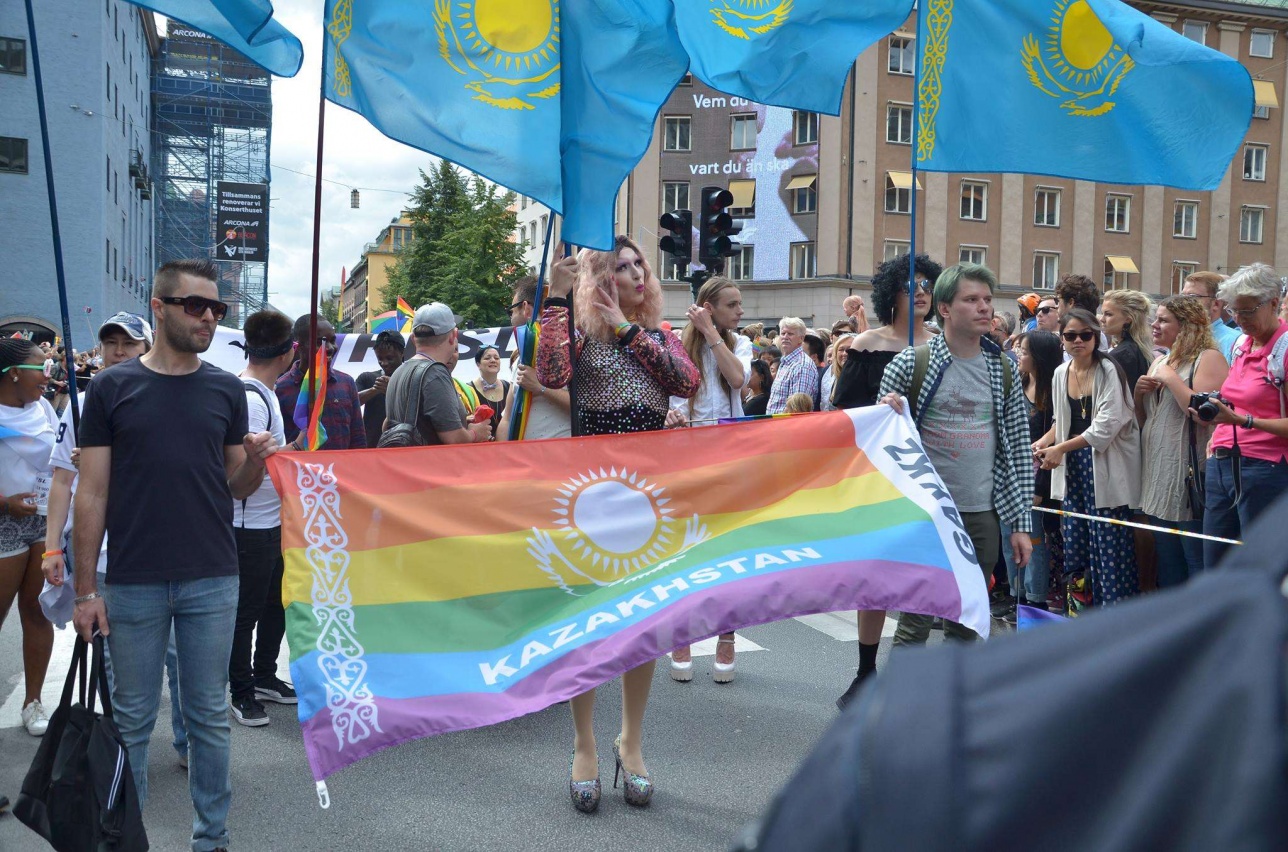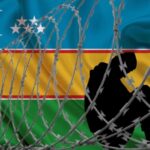Negotiations for an EU-Kazakhstan enhanced partnership and cooperation agreement
Committee on Foreign Affairs
PE492.945
The European Parliament,
– having regard to the Partnership and Cooperation Agreement establishing a partnership between the European Communities and their Member States, of the one part, and Kazakhstan, of the other part, which entered into force on 1 July 1999[1],
– having regard to the negotiations authorised by the Council on 24 May 2011 and opened in Brussels in June 2011 on an enhanced EU-Kazakhstan Partnership and Cooperation Agreement,
– having regard to its resolutions on Kazakhstan, in particular that of 15 March 2012[2] and that of 17 September 2009 on the case of Yevgeny Zhovtis[3], and to that of 7 October 2010 on the World day against the death penalty[4],
– having regard to its resolution of 15 December 2011 on the state of implementation of the EU Strategy for
– having regard to the EU Strategy for a New Partnership with Central Asia: ‘The European Union and Central Asia: Strategy for a New Partnership’, adopted by the European Council on 21-22 June 2007, and to the progress reports of 24 June 2008 and 28 June 2010,
– having regard to the EU’s statements on Kazakhstan in the OSCE Permanent Council, of 3 November and 22 December 2011 and 19 January, 26 January and 9 February 2012, and to the statements by EU HR/VP Catherine Ashton on the events in the Zhanaozen district of 17 December 2011 and on the 15 January 2012 parliamentary elections in
– having regard to the statement of preliminary findings and conclusions of the OSCE/ODIHR-led mission observing the 15 January 2012 parliamentary elections,
– having regard to the statement on the media situation in
– having regard to the general provisions on the Union’s external action laid down in Article 21 TEU, and the procedure for the conclusion of international agreements set out in Article 218 TFEU,
– having regard to the commitments made by the High Representative in her letters of 24 November 2011 and 11 May 2012 concerning a mechanism to monitor the implementation of the EU-Turkmenistan PCA and in particular of its Article 2,
– having regard to paragraph 23 of its resolution of 16 February 2012 on the 19th Session of the UN Human Rights Council[6],
– having regard to the new EU Strategic Framework and Action Plan on Human Rights and Democracy adopted by the EU foreign ministers, and to the conclusions adopted at the 3179th Foreign Affairs Council meeting of 25 June 2012,
– having regard to the statement to the European Parliament on Kazakhstan delivered on behalf of High Representative Catherine Ashton by the Danish Foreign Minster, Villy Søvndal, on 14 March 2012 (A 122/12),
– having regard to Rules 90(4) and 48 of its Rules of Procedure,
– having regard to the report of the Committee on Foreign Affairs and the opinion of the Committee on International Trade (A7-0355/2012),
A. whereas the EU and Kazakhstan aspire to deepen and broaden their relations; whereas the peoples of the EU and Kazakhstan should benefit mutually from closer cooperation; whereas the conclusion of the new PCA negotiation should provide a comprehensive framework for cooperation based on human and democratic rights, as well as opportunities for socio-economic development and for the necessary political and economic reforms; whereas social and economic development are closely interconnected;
B. whereas although the suspension of the application of any PCA has been used only rarely and partially by the Council, it remains a viable option in case of serious and documented breaches of human rights;
C. whereas Kazakhstan has played a positive role in Central Asia, making efforts to develop good neighbourly relations with bordering countries, resume regional cooperation and resolve all bilateral issues by peaceful means;
D. whereas Parliament, in order to be able to fulfil its function of political scrutiny, needs to have available to it full information allowing it to closely follow developments in Kazakhstan and the implementation of the PCA in line with its recommendations and resolutions;
E. whereas Kazakhstan has been admitted to the Venice Commission of the Council of Europe; whereas during the negotiations for an enhanced PCA the EU and Kazakhstan need to find a common language on human rights and democracy;
F. whereas Kazakhstan held the OSCE chair in 2010; whereas the commitments made to bring media law into line with international standards, liberalise registration requirements for political parties by the end of 2008, and incorporate the recommendations of the OSCE’s Office of Democratic Institutions and Human Rights (ODIHR) into the electoral law, still need to be fulfilled;
G. whereas, notwithstanding the Kazakh government’s stated ambition to strengthen Kazakhstan’s democratic process and to conduct elections in line with international standards, the general elections held on 15 January 2012 were deemed by the OSCE not to be in line with its standards, given widespread voting irregularities and the failure to provide the necessary conditions for the conduct of genuinely pluralistic elections;
H whereas after the tragic events of December
I. whereas there is an ongoing open and constructive dialogue between MEPs, official representatives of Kazakhstan, representatives of civil society and NGOs on issues of mutual interest;
J. whereas the Kazakh authorities have recently undertaken important efforts in terms of cooperation with NGOs in West Kazakhstan, in order to improve the situation for the inhabitants of the region, and in particular for workers on strike;
K. whereas 37 people have been put on trial on charges of organising or participating in mass unrest, and 34 of these have been convicted, of whom 13 will serve time in prison, among them prominent leaders and activists from the oil workers’ strike, including Talgat Saktaganov, Roza Tuletaeva and Maksat Dosmagambetov; whereas in July 2012 the UN High Commissioner for Human Rights, Navi Pillay, following her two-day visit to Kazakhstan, called on the authorities to authorise an independent international investigation into the events of Zhanaozen, their causes and their aftermath;
L. whereas the International Monitoring Mission of Civic Solidarity concludes in its preliminary report that the Zhanaozen trials cannot be considered as compliant with fair trial standards, and that the investigation into the events of December 2011 was neither full nor independent; whereas the accused and some witnesses were victims of violations of their rights during the pre-trial stage, including the alleged use of torture, denial of access to an attorney, intimidation, and fabrication of evidence; whereas the defendants’ testimony offered at their trials concerning ill-treatment and torture during their pre-trial detention was not fully, impartially and thoroughly investigated in a manner capable of holding the perpetrators responsible;whereas on 7 October 2012, Aleksandr Bozhenko, a witness to the tragic events in Zhanaozen, was killed;
M. whereas Vladimir Kozlov, the leader of the opposition party ALGA, has been found guilty of ‘inciting social discord‘, ‘calling for the forcible overthrow of the constitutional order‘ and ‘creating and leading an organised group with the aim of committing crimes‘, and has been sentenced to seven and a half years in prison; whereas Akzhanat Aminov, an oil worker from Zhanaozen, and Serik Sapargali, a civil society activist, have been convicted on similar charges and have been handed down a five-year and four-year suspended sentences respectively;
N. whereas on 17 February 2012 the President of Kazakhstan signed several laws aimed at improving the legal basis for labour relations, workers’ rights and social dialogue and strengthening the independence of the judiciary; whereas despite these attempts, the right of individuals to associate, to organise and to register independent trade unions, the right to collective bargaining and the right to strike are not being fully respected, and a fully independent judiciary is not in place; whereas the amendments to the Labour Code, in particular amended articles 55, 74, 266, 287, 289, 303, and 305, mark a regression in the field of labour relations, workers’ rights and social dialogue and a breach of the conditions laid down in ILO and other international conventions;
O. whereas the EU is a key trading partner for Kazakhstan and the biggest investor in the country; whereas Kazakhstan has clearly expressed its wish to approximate to the EU’s standards and its social and economic models, which will entail a thorough reform of the Kazakh state and public administration;
P. whereas
Q. whereas
R. whereas the EU is heavily dependent on imports of mined phosphate rock in order to sustain its agriculture and technical production; whereas Kazakhstan supplies many countries with white phosphorus and the Commission initiated an anti-dumping procedure against imports of white phosphorus from Kazakhstan in December 2011;
1. Welcomes
2. Addresses the following recommendations to the Council, the Commission and the HR/VP, calling on them to:
On the conduct of the negotiations
(a) ensure that this new PCA is a comprehensive framework for the further development of relations, addressing all priority areas, including: human rights, the rule of law, good governance, and democratisation; youth and education; economic development, trade and investment; energy and transport; environmental sustainability and water; and combating common threats and challenges;
Political dialogue and cooperation
(b) ensure that the EU’s engagement is consistent with other Union policies and for the principle of ‘more for more’ to be applied, with particular emphasis on supporting political, legal, economic and social reforms;
(c) work closely with Kazakhstan in order to promote regional cooperation and the improvement of neighbourly relations in the Central Asia region and ensure that the PCA contains provisions for regional cooperation within the Central Asia region, inter alia by support for confidence-building measures where appropriate, particularly in such areas as water and resource management, border management, the fight against extremism and counter-terrorism; recommends that this cooperation should foster exchanges of experiences and take on board the recommendations of civil society organisations;
(d) seek
(e) cooperate with
(f) reinforce the EU’s action in the fields of education, the rule of law, the environment and water, inter alia through newly established support platforms and targeted assistance, as well as bringing local NGOs and Civil Society Organisations (CSOs) into the EU’s dialogue with the Kazakh government in those areas where this is appropriate and possible; calls, given the current difficulties in registering NGOs and CSOs, for this dialogue not to be limited to those which are officially registered;
(g) stimulate
(h) support policy reforms and institutional capacity-building through targeted technical assistance (exchange of experts);
Human rights and fundamental freedoms
(i) ensure that the PCA incorporates clauses and benchmarks relating to the protection and promotion of human rights as enshrined in the Constitution of Kazakhstan, drawing to the fullest possible extent on the standards laid down by the Council of Europe (Venice Commission), the OSCE and the UN to which Kazakhstan has committed itself;
(j) urge the Kazakh authorities to make every effort to improve the human rights situation in their country;
(k) emphasise that progress in the negotiation of the new PCA must be linked to the progress of political reform; urge Kazakhstan to maintain its declared commitment to further reforms, in order to build up an open and democratic society including an independent civil society and opposition and respecting fundamental rights and the rule of law; adequate assistance on the EU’s part for implementing the reforms;
(l) express deep concern over the detentions without proven violation of law which could be considered as politically motivated, which show disregard of Parliament’s resolution of 15 March 2012 demanding the release of all persons detained on politically motivated charges;
(m) call on the Kazakh authorities, in this regard, to promptly and impartially investigate all allegations of torture and ill-treatment in connection with the Zhanaozen violence and hold the perpetrators accountable, repeal the vague criminal charge of ‘inciting social discord’, release from pre-trial detention the opposition activists who are held on this basis, and review the legislation on freedom of assembly in order to bring it into conformity with Kazakhstan’s international obligations on freedom of assembly;
(n) express great concern with regards to the lawsuit introduced on 20 November 2012 by Kazakhstan’s Prosecutor General demanding unregistered opposition party Alga, Khalyk Maidany association and a number of opposition media outlets to be banned as extremist; strongly underlines that the legitimate fight against terrorism and extremism should not be used as an excuse to ban opposition activity and hinder freedom of expression;
(o) express deep concern at the sentencing of Vladimir Kozlov, Akzhanat Aminov and Serik Sapargali, after a trial with numerous procedural shortcomings, with the effect of further limiting political freedom in Kazakhstan for the opposition; call on the Kazakh authorities to grant Kozlov, Aminov and Sapargaly a fair and transparent appeal process;
(p) insist that Kazakhstan further translates its Human Rights Action Plan into legislation and continues to implement it in full, drawing on the recommendations of the Venice Commission and making use of EU technical assistance under the Rule of Law initiative;
(q) call on Kazakhstan, as a member of the Venice Commission, to demonstrate its commitment to Council of Europe standards by cooperating with the Venice Commission, including by submitting specific draft laws and recently adopted laws for comments to the Venice Commission and implementing the recommendations of the Commission;
(r) insist that the Kazakh authorities make binding commitments to bring the legal system fully into line with international standards and ensure that implementation facilitates true media freedom, freedom of expression and association, freedom of religion and belief and the independence of the judiciary in
(s) insist on improved access to justice, judicial independence, and the return of the control and management of penitentiaries to the Ministry of Justice;
(t) urge Kazakhstan to release , without further delay, prisoners convicted on political grounds and end politically motivated arrests and convictions carried out on the basis of the vague criminal charge of ‘inciting social discord’;
(u) urge the Kazakh authorities to amend Article 164 of Kazakhstan’s Criminal Code on ‘inciting social discord’ so as to bring it into line with international human rights law;
(v) insist that Kazakhstan should reconsider the restrictive amendments to the administrative code and the recent law on religion, and put an end to the arbitrary raids, interrogations, threats and fines directed against minority religious groups;
(w) start negotiations on visa facilitation between the EU and
(x) insist that Kazakhstan comply with the recommendations of the UN Committee Against Torture and the 2009 recommendations of the UN Special Rapporteur on Torture; call on Kazakhstan to ensure the participation of independent NGOs in consultations on the upcoming reform of the Criminal Code and the Criminal Procedural Code;
(y) call on
(z) insist on establishing independent civil society platforms to contribute to inclusive exchanges in a number of sectors, in order to ensure that the aspirations and voices of civil society are heard and seek means of providing financial assistance for this goal;
(aa) step up and strengthen the annual human rights dialogues with a view to achieving tangible improvements, inter alia by setting concrete benchmarks to measure progress, and report back to the EP;
(ab) intensify and broaden the scope of the exchange programmes in education and culture; encourage and support legal training for local and regional officials and members of law enforcement bodies to bring them up to EU standards; encourage and support Kazakhstan in taking the lead in the formation of a special educational programme, to include both academic and vocational training, between the EU and Central Asian countries;
Economic cooperation
(ac) highlight the fact that the conclusion of the new PCA negotiation will have a positive impact on the deepening of economic cooperation between EU and Kazakh companies, including SMEs;
(ad) encourage legislation in conformity with WTO rules, including on local content requirements under the Agreement on Trade Related Investment Measures (TRIMs), paving the way for structural reforms and the creation of a working market economy; and provide Kazakhstan with qualified technical assistance in order to pave the way for subsequent structural reforms, increased competitiveness, and the creation of a social market economy;
(ae) call for the removal of tariff and non-tariff barriers in order to extend trade, particularly trade in services and foreign investment; support the ambition of harmonising standards in trade in goods beyond the conditions set by the WTO, since this would also lead to a broadening of trade opportunities;
(af) emphasise the importance of EU-Kazakhstan energy cooperation, particularly in terms of the efforts to develop the trans-Caspian energy route; ensure continued emphasis by the EU on support for enhancing energy security and sustainable energy development, and attracting investment for energy projects of common and regional interest;
(ag) ensure that Kazakhstan’s participation in the Russian-led Customs Union and the Eurasian Economic Union does not constitute a barrier to trade or to economic and financial cooperation with the EU, or to fulfilling its obligations arising from WTO membership, and is not an obstacle to closer cooperation between the EU and Kazakhstan; points out that competition will result if the conclusion of the enhanced partnership and cooperation agreement is delayed; be ready to assist Kazakhstan’s efforts to promote modern economic institutions, should such efforts be undertaken;
(ah) encourage the Kazakh government to demonstrate its renewed commitment to the Extractive Industries Transparency Initiative (EITI) by removing all legal or regulatory obstacles to its successful implementation and allowing independent civil society organisations to participate fully in the initiative;
(ai) include a chapter on the convergence of
(aj) stress that water issues in the region remain one of the main sources of tension and potential conflict, and underlines the importance of a regional approach in order to protect and properly manage shared water resources; in this context, reiterate the importance of the countries of the region signing and ratifying without delay the Espoo and Århus Conventions and fostering the involvement of local actors in decision-making;
(ak) step up its technical assistance to Kazakhstan in the field of water conservation and management of water resources in general, in the framework of the EU Water Initiative for Central Asia, with a view also to improving relations between upstream and downstream countries in the region and reaching sustainable water-sharing agreements;
(al) support and assist
(am) assist
(an) welcome
(ao) draw attention to the critical situation as regards democracy, the rule of law (including the fight against corruption) and human rights and fundamental freedoms, especially workers’ rights, which also creates unfair competitive advantage; stress, in view of this situation, that a binding trade and sustainable development chapter must be included in the trade title of the new agreement;
(ap) insist on the introduction of an effective dispute settlement regime to ensure that the agreement reached will be respected;
(aq) stress that a strong services and establishment chapter and convergence of Kazakhstan towards EU standards and regulatory systems (including SPS, TBT and IPR) would lead to increased trade flows and investment, which would favour the modernisation and diversification of Kazakhstan’s economy; underline the importance of improving licensing procedures in Kazakhstan in order to facilitate services and investment;
(ar) encourage
(as) focus economic and trade-related assistance to
(at) in the light of recent allegations of corruption against EU-based corporations operating in
(au) consider it of utmost importance that European-based corporations respect ILO standards on trade union rights as well as environmental and health and safety standards when operating in
(av) ensure in the negotiations that the use of dumping practices in connection with phosphorus production and export is categorically ruled out, as the interests of European producers are allegedly being harmed by dumped imports and it is impossible to retrieve and recycle phosphorus from secondary phosphorus streams;
(aw) ensure an adequate presence of economic and trade specialists in the EU Delegation in
Other provisions
(ax) consult the EP regarding the provisions on parliamentary cooperation; enhance the role of Parliament, Parliamentary Cooperation Committees and inter-parliamentary meetings as means to monitor the negotiation and implementation of partnership agreements; encourage Parliament’s efforts to promote dialogue and regular bilateral and multilateral parliamentary cooperation;
(ay) ensure that the new PCA refers to respect for democratic principles, fundamental and human rights and the principle of the rule of law as ‘essential elements’ of the agreement, so that failure to observe them by any of the parties would result in the adoption of measures which could eventually lead to the suspension of the agreement;
(az) include, together with the Kazakh authorities, clear benchmarks and binding deadlines for the implementation of the new PCA, and provide for a comprehensive monitoring mechanism, including regular reports to the EP, which would also apply in advance of Cooperation Council meetings;
(ba) establish a comprehensive monitoring mechanism between Parliament and EEAS once the Agreement is concluded, so as to allow for comprehensive and regular information on the implementation of the PCA, and in particular of its objectives; this mechanism should contain the following elements:
(i) provision to the EP of information on the objectives pursued by EU actions and positions, and on all issues relating to
(ii) provision to the EP of information benchmarking the results of actions undertaken by the EU and
– allowing access under the appropriate confidentiality procedures to the relevant EEAS internal documents;
– granting Parliament observer status in the briefing meetings ahead of meetings of the Cooperation Council, and access to documents provided to the Council and Commission;
– involvement of civil society in the preparation of this information and the assessment of the situation;
(bb) encourage the EU negotiating team to continue its close cooperation with the EP, providing ongoing information supported by documentation on the progress of the negotiations pursuant to Article 218(10) TFEU, which states that Parliament shall be immediately and fully informed at all stages of the procedure;
(bc) provide sufficient EU funding for a comprehensive and sustainable cooperation with the Central Asian countries, including for the successful implementation of the new PCA with
3. Instructs its President to forward this resolution containing the European Parliament’s recommendations to the Council, the Commission, the HR/VP and the Government and Parliament of the

















